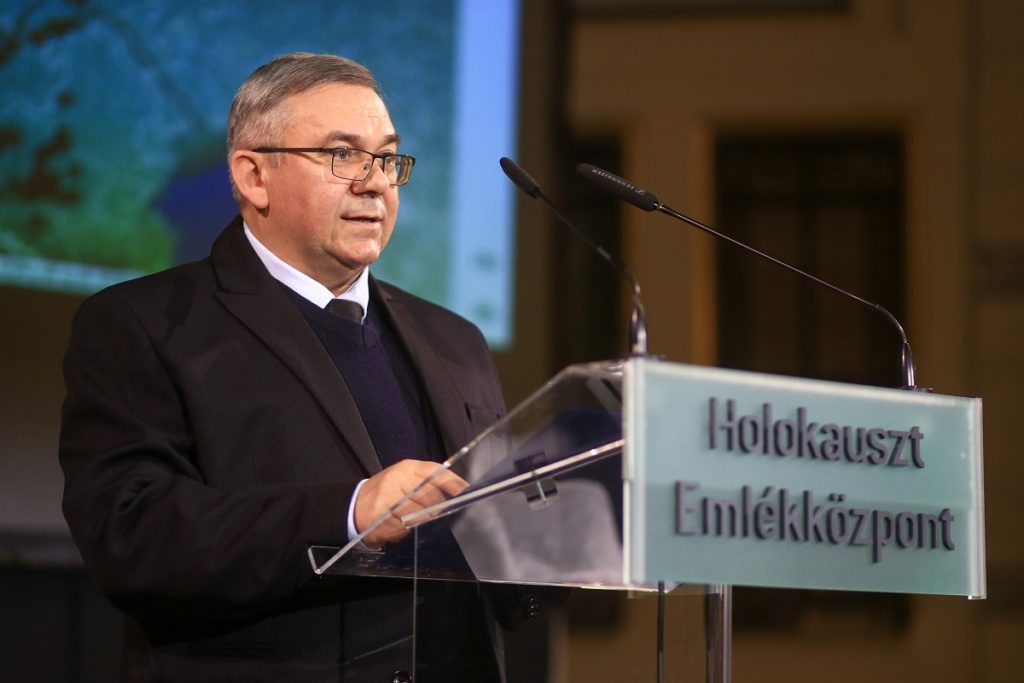
RO:
"Servește pacea și liniștea și siguranța țării"
Presa bisericească a Ungariei pe vremea legilor evreilor (1938-1942)
"Servește pacea și liniștea și siguranța țării"
Presa bisericească a Ungariei pe vremea legilor evreilor (1938-1942)
Opera prezentată este o nouă variantă a unui tratat existent, acum transformat în monografie și extins printr-o culegere de texte, care analizează prezentarea în presă a celor cinci legi referitoare la evrei din perioada 1938-1942. Autorul evaluează această perioadă ca un eșec moral și pierdere a legitimității al bisericilor creștine din Ungaria, deoarece reglementările limitative și privative de drepturi la adresa evreilor, nu a stârnit rezistență din partea bisericilor; în mare parte au fost de acord cu acestea, vrând-nevrând au luat parte la procesul prin care societatea maghiară s-a "acordat pe frecvența" Holocaustului.
Prezentarea va fi compusă din două blocuri a câte 15 minute, în urma ambelor blocuri va avea loc un rezumat de 5 minute în limba română.
Publicul va putea înainta întrebări atât în limba maghiară, cât și în limba română, autorul fiind născut în Transilvania.
HU:
"For the peace and tranquillity and security of the country"
The Hungarian Church Press during the Jewish Laws (1938-1942)
"For the peace and tranquillity and security of the country"
The Hungarian Church Press during the Jewish Laws (1938-1942)
Dr. Attila Jakab, historian at the Holocaust Memorial Centre in Budapest, examines the press representation of five Jewish laws from 1938 to 1942.
The author assesses the period as a complete moral bankruptcy and loss of faith of the Christian churches in Hungary, since the restrictive regulations and deprivation of rights imposed on the Jews did not arouse resistance from the churches; they were largely agreed with, and thus contributed, wittingly or unwittingly, to the "attunement" of Hungarian society to the Holocaust.
The author assesses the period as a complete moral bankruptcy and loss of faith of the Christian churches in Hungary, since the restrictive regulations and deprivation of rights imposed on the Jews did not arouse resistance from the churches; they were largely agreed with, and thus contributed, wittingly or unwittingly, to the "attunement" of Hungarian society to the Holocaust.
The presentation consists of 2 x 15-minute blocks in Hungarian, each followed by a 5-minute summary in Romanian.
The audience can ask questions in Romanian and Hungarian.
The audience can ask questions in Romanian and Hungarian.
The speaker/author of "Hungary and Christian Country. Christian denominations and anti-Semitism in the Horthy era" (Budapest: WJLF, 2021):
0 Comments